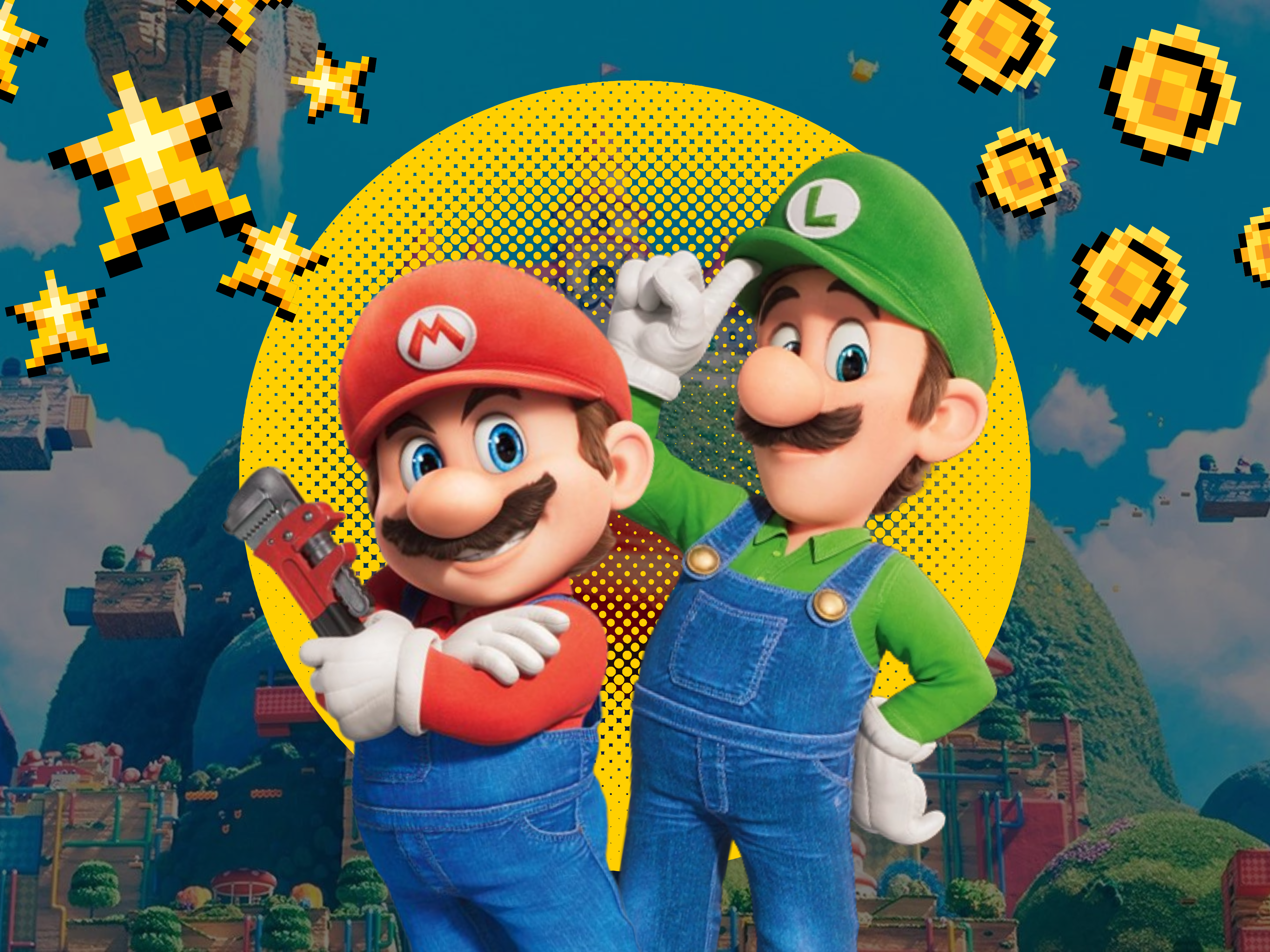“The Super Mario Bros. Movie” succeeded wildly at everything it wanted to do. Admittedly, it didn’t want to do much.
On the way to the theater, a friend and I speculated wildly about what themes a Mario movie would engage with. While certain characters in the Mario games have well-defined (albeit one-dimensional) characterizations — Bowser is power-hungry, Luigi is timid, Peach is clever — Mario, by design, has always been a blank slate.
What would Mario’s arc be? What would he have to learn over the course of the narrative? What sorts of themes would Mario, and his accompanying universe, lend themselves to exploring? Given the threat of a Koopa invasion, I came to expect storylines about adversity, war or unity. However, I’m fully aware that guessing about a Mario movie’s themes is meaningless. I doubt anyone in the audience sincerely expected this film to really do or say anything, because we know that’s not the point.
“The Super Mario Bros. Movie” is a film that, first and foremost, knows what it is: throughout the entire experience, Nintendo and Illumination never let you forget that they are here to entertain you and sell you a product.
This isn’t to say there weren’t moments I found genuinely enjoyable. I was pleasantly surprised by the opening scenes in Brooklyn, which were genuinely compelling and felt lived-in. Chris Pratt’s mercifully brief attempts at an Italian accent had me in stitches.
Additionally, in a game series where Peach tends to be either Mario bait or a sluggishly safe playable character, Anya Taylor-Joy’s acrobatic and cunning Peach is a breath of fresh air. She’s not only capable in her own right — leaping through courses with precision and trashing her forced wedding — but she has an interesting dynamic with Mario that we’ve never seen before. As his mentor, Peach is compassionate yet tough as she challenges Mario to self-actualize.
She’s still not much more than a vehicle for Mario’s journey, but it’s something. After seeing just a glimmer of what Princess Peach can be, it’s an undeniable shame that Nintendo has limited her role for decades.
It’s also no surprise that Jack Black stands out for his fantastic performance as Bowser, because Bowser was one of the few characters that actually played to the cast’s strengths. There’s a particularly excellent scene where Bowser croons a hilariously over-the-top power ballad; it makes me think Black was given a simple prompt in the studio and told to go crazy with it. The rest of the characters range from being horribly miscast (Seth Rogen’s Donkey Kong, surprisingly) to a waste of talent (Keegan-Michael Key’s Toad) to purely functional (Charlie Day’s Luigi).
Here, the praise runs dry. I would be more accepting of the film’s mistakes if they were true mistakes. Instead, I sense that there are no mistakes in “The Super Mario Bros. Movie,” only corporate decisions.
When you strip away the branding, it’s clear this movie is a mess. It races through its tight three-act structure like it has a gun to its head, carelessly raising and dropping major character beats and plot points in seconds, never to be seen again. It’s like reading a Wikipedia summary where each new sentence gives you emotional whiplash.
On top of this, the film is pathologically stuffed past its limit with incessant references to the Mario franchise. Besides being infuriatingly grating, this perverted more-is-more philosophy sabotages every other part of the movie.
To be fair, a movie like this needs at least a little product placement to function. A “Mario” movie must necessarily reference its source material, all of which is purchasable.
This being said, based on the sheer volume of references, I suspect that product placement isn’t something for this movie to circumvent: it’s the entire justification for its existence. So if, for instance, your Mario Kart chase sequence completely negates the second act, it doesn’t matter. Someone crunched the numbers and told producers that moving a couple extra units of Mario Kart 8 yields a greater return than, say, making a real movie.
This is the obvious, underwhelming conclusion to any possible analysis of the film. As deep as you can go into the ways this movie’s just an ad, at the end of the day, it’s just an ad.
Of course, this is exactly what I expected. Yet it’s incredibly galling that this 90-minute advertisement doesn’t even have the decency to lie to me about not being an advertisement. It’s frustrating that, as much as I want to engage with the movie, when I look at “The Super Mario Bros. Movie,” nothing looks back but a dark abyss.
Literally: in its final moments, a comedically nihilistic character floats onto a black screen and talks about how yes, the movie was fun, but doesn’t it feel empty? Now that it’s all over?
With this movie, that’s true — but it’s not always true. Good art stays with you after it’s finished. Good art changes you just a little bit. Good art is fundamentally an earnest, vulnerable plea to express our human experiences and have those experiences heard.
“The Super Mario Bros. Movie” doesn’t try to do this, doesn’t care about this and spends its entire runtime telling you with brutal efficiency that it doesn’t try or care about this. So thank you, but a better movie’s in another castle.
Editor’s Note: This article is a review and contains subjective opinions, thoughts and critiques.
